According to NASA, the definition of Climate Change is a change in the usual weather found in a place. However, that definition does not begin to describe the intense weather extremes that have already started and will continue to wreak havoc for humans, animals, and plants. NASA data show that average global temperatures in 2019 were 1.8 degrees F (0.98 degrees C) warmer than the 20th-century average. According to the 2020 Global Climate Report from the National Oceanic and Atmospheric Administration (NOAA) National Centers for Environmental
Information, every month of 2020, excluding December, was in the top four warmest on record for the month. As of May 2020, the concentration of carbon dioxide in the atmosphere has reached an all-time high in human history.
According to The MGH Institute of Health Professionals and the World Bank (2018) on Climate Change and Health report, climate change – experienced primarily through shifts in temperature, rainfall, and sea level – can hold drastic impacts on human health. For example, over 100 million people may fall into extreme poverty by 2030 as a result of climate change. Climate change could increase dysentery by upwards of 10 percent by 2030 in regions such as South-East Asia and warming of 2-3°C is estimated to boost the number of people at jeopardy of contacting malaria by up to 5 percent globally.
Unfortunately, these obstacles are only worse for people of color. People of color tend to be more vulnerable to extreme weather events, environmental degradation, and consequent labor market dislocations due to the historical inequities in housing, education, employment, and healthcare.
And while it’s hard not to become pessimistic, some young activists are fighting for change and giving us a reason for hope. They realize that younger generations will bear the brunt of these extreme conditions, and they are working tirelessly to force governments, businesses, and individuals to do something about it. The HBCU Clean Energy Initiative is proud to recognize three inspirational activists of color.
Wanjiku Gatheru is a twenty-two-year-old environmental justice advocate, ecological consultant, and public speaker from Kenya and Connecticut. Gatheru, the University of Connecticut’s first Rhodes Scholar, was recognized for identifying barriers in the environmental field for people of color. Gatheru aims to empower Black Indigenous and People of Color (BIPOC) communities to engage in building an environmental movement that represents all people. She often takes part in boards, conferences, and other speaking opportunities to raise awareness and prioritize steps the ecological movement can take to become more inclusive.
She founded the project Black Girl Environmentalist to construct a supportive community for black girls, women, and non-binary environmentalists. This past February, Gatheru initiated Black Girl Environmentalists’ Reclaiming Our Time campaign – one of the most significant Black youth-led environmental actions in years – with many famous people lending support, such as Hollywood actress Anne Hathaway.
Gatheru was a lead organizer in Connecticut’s first Youth Climate Lobby Day, a United Nations Global Health Fellow, a delegate at the 2017 U.N. Climate Change Discussions, and a founding member of the President’s Council on Race and Diversity at UConn. Gatheru also initiated the Ban the Bottle campaign, resulting in the removal of bottled water from several retail locations on campus.
Aniyah Butler is a fifteen-year-old who is a part of Youth Vs. Apocalypse, a youth climate action group that stands for the voices of people of color and stands up for environmental justice. Butler has helped to organize climate strikes with tens of thousands of attendees. She applied for and won a $10,000 grant to cover supplies and equipment and pay for the participation of several artists and other professionals at the Movement Art Celebration event. The event focused on fossil fuel divestment, racial equity, police reform, and climate policy changes. She also empowers young people by providing them with tools of environmental literacy to guarantee that the knowledge and skills are passed on to more people for a more equitable and sustainable future. Not long ago, Butler spoke with the California Environmental Literacy Initiative on climate change and intersectionality.
Kevin J. Patel, nineteen, is a climate activist and founder of the One Up Action, a climate action-based organization intended to help youth grow as leaders. Patel grew up in a marginalized Los Angeles neighborhood, one of the most polluted cities in America, and was diagnosed with heart palpitations at age 14 stemming from that pollution. He realized that human health risks would only worsen due to climate change, particularly for younger people. Patel saw first-hand how states like California have been affected by climate change with extreme wildfires and droughts and recognized that many that live near polluting factories are people of color. Patel also urges youth in other countries to get involved, such as India, as they are already significantly impacted by climate change.
Patel is also the Co-Deputy Partnerships Director for the youth-led climate movement, Zero Hour, is a lead organizer for Youth Climate Strike LA., works as a leader for Climate Reality, and Ignition Green as a chapter coordinator.
In summary, if there is one thing we can learn from these exceptional young activists, it’s that everyone, no matter the age, can make a difference. And we all need to do our part sooner rather than later as time is definitely running out.
To read more about the HBCU Clean Energy Initiative, click here
To read more of our blogs, click here

